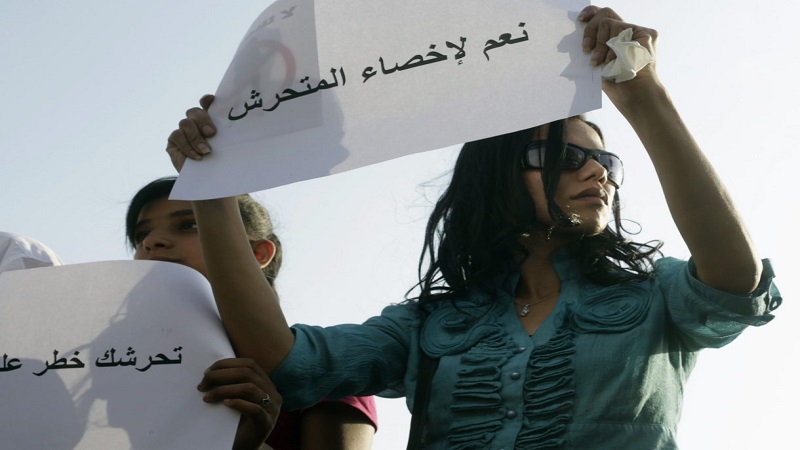An Egyptian court Sunday sentenced a man to eight years in prison for sexually harassing three minors and drug possession, in a case that sparked outrage on social media.
Ahmed Bassam Zaki, a former student at the American University in Cairo, was sentenced to seven years in jail for sexually harassing three underage girls and one year for drug possession, a judicial source told AFP.
He can appeal the verdict, the source added.
Zaki, who is in his 20s, had already been sentenced in December to three years in prison for sexually harassing two young women by Egypt’s economic court, which tries cyber crimes.
The court found he had sent sexual photos to one of the women and repeatedly contacted the other without her consent.
In July, Instagram and Twitter accounts under the name of “Assault Police” published claims against Zaki, including an alleged rape and dozens of incidents of assault against women and girls, as young as 14, some involving blackmail.
Allegations against Zaki had been made before, but authorities reacted only after the claims went public through “Assault Police,” which had received more than 100 complaints against him.
Zaki was arrested on 4 July and confessed to assaulting and blackmailing six complainants, one of whom was a minor.
#MeToo
Zaki’s case sparked a MeToo movement in a country where women suffer widespread sexual harassment, a criminal offence since 2014.
The National Council for Women said that within five days of the case being made public it had received 400 complaints, mainly about violence against women.
Despite legislation and civil society efforts to address the problem, surveys have shown that nearly 60 percent of women have been the target of this form of harassment in public spaces, and an equal proportion of men have admitted to harassing women in public.
Women are often reluctant to speak out, fearing public shame and being blamed for dressing or acting “provocatively”.
Egypt’s parliament in August approved amendments to the criminal code granting victims of sexual assault the right to anonymity. The move was aimed at encouraging women and girls to report cases of sexual violence.
One prominent case that came under the spotlight through Egypt’s MeToo campaign was an alleged gang rape of a young woman at Cairo’s luxury Fairmont Nile City Hotel in 2014.
The suspected nine men, believed to be from wealthy backgrounds, allegedly used a video of the incident to blackmail her into silence.
Authorities later arrested witnesses in the case, in a move denounced by critics as an attempt at intimidation.
Source: Middle East Eye






 WhatsApp us
WhatsApp us 

